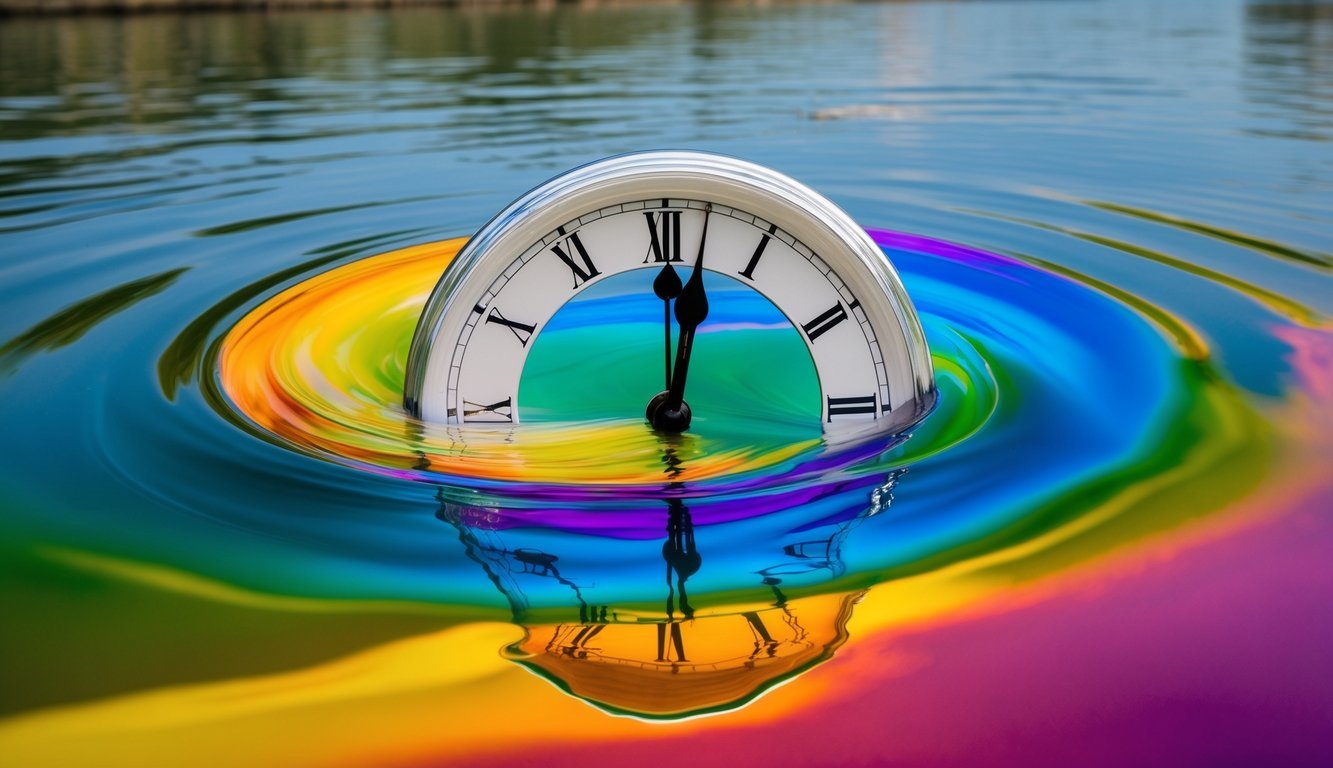Physical Address
304 North Cardinal St.
Dorchester Center, MA 02124
Physical Address
304 North Cardinal St.
Dorchester Center, MA 02124
Time perception varies based on context, influenced by experiences, novelty, boredom, and stress, leading to time expansion experiences during intense situations or altered states of consciousness.


Our perception of time can fluctuate significantly based on various contexts.
For example, traveling to new and unfamiliar places often makes time feel longer; a week spent abroad can seem much more extended than a similar period at home.
Additionally, experiences of boredom or discomfort can stretch our sense of time, while moments of deep engagement—such as playing a musical instrument, mastering a chess strategy, or dancing—can create the impression that time flies.
Moreover, many people notice that as they age, their perception of time tends to accelerate.
While these variations in time perception are common, they usually remain comparatively mild.
However, there are cases of drastically altered time perception, known as time expansion experiences (Tees), where seconds can feel like minutes.
The mechanisms behind these differing time perceptions are not entirely understood.
Some researchers suggest that variations may be related to cognitive processing of information.
Generally, an increased volume of stimuli—such as sights, sounds, and thoughts—can create the sensation that time slows down.
This phenomenon is particularly noticeable in children, who often perceive time as crawling due to their experiences in a novel world.
Unfamiliar environments tend to extend our sense of time, while concentrated engagement compresses it, as attention narrows and mental chatter diminishes.
In contrast, boredom can expand time due to the proliferation of unfocused thoughts.
Time expansion experiences often occur in high-stress situations, such as accidents or emergencies like car crashes or sudden falls.
People frequently express surprise at how much time they perceive they have to think and react during these events.
Many attribute their survival in such instances to this expanded perception of time, which provides a critical opportunity for action that would otherwise seem impossible.
Interestingly, about 10% of these experiences are associated with the use of psychedelic substances like LSD and ayahuasca.
One person noted that under the influence of LSD, he perceived time increments on his stopwatch moving at an unusually slow pace, reminiscent of how seconds usually feel.
The reasons behind these experiences raise intriguing questions.
One possible explanation is that, in emergency situations, a surge of noradrenaline—a hormone linked to the “fight or flight” response—may play a role.
However, this theory does not account for the calmness many people report during their Tees, even in life-threatening situations.
For instance, one woman who fell from a horse recounted feeling extraordinarily calm during her Tee, unaffected by the possibility of the horse falling on her again.
This noradrenaline hypothesis also fails to explain encounters with Tees outside of high-stress contexts.
Another perspective is that these time expansion experiences might be an evolutionary adaptation.
It could be that our ancestors developed the ability to perceive time more slowly in dangerous situations, providing a survival advantage against predators or environmental hazards.
However, this theory does not satisfactorily cover the occurrence of Tees in non-emergency settings.
A third viewpoint suggests that Tees may represent a form of illusory recollection.
Heightened awareness could lead people to take in more sensory data than usual during emergencies, embedding this information in their memories and resulting in the belief that time had stretched.
In a survey of 280 reported Tees, only 3% of participants considered their experiences illusory, while around 87% felt they genuinely had more time to act during these moments.
To better understand time expansion experiences, it is essential to consider their connection to altered states of consciousness.
The sudden impact of an accident may disrupt standard cognitive processes, resulting in a rapid change in consciousness.
In sports, heightened engagement can create intense states described as “super-absorption.”
Typically, absorption leads to a sensation of time speeding up—as seen during a flow state when someone is deeply engrossed in an activity.
However, prolonged, high-intensity absorption can have the opposite effect, significantly slowing down the sense of time.
These altered states of consciousness can also influence a person’s sense of identity and the perceived boundary between the self and the outside world.
Psychologist Marc Wittmann emphasizes the intricate relationship between our experience of time and our self-perception.
In states of heightened awareness, this sensation of separation diminishes, enabling people to feel more connected to their environment, which may expand their perception of time.
Ultimately, time expansion experiences provide a unique opportunity to delve into our understanding of time and explore the complex relationship between consciousness and perception.
“`